Shanghai Weather
Shanghai weather is generally mild and moist, with four distinctive seasons - a pleasant warm spring, a hot rainy summer, a comfortable cool autumn, and an overcast cold winter. The weather of Shanghai in July and August is the hottest, with more than 10 days' high temperatures above 35 ![]() C (95
C (95 ![]() F). The coldest period is from late January to early February. The location at the estuary of the Yangtze River to the East China Sea makes the city so wet that it rains for about one third of the year.
F). The coldest period is from late January to early February. The location at the estuary of the Yangtze River to the East China Sea makes the city so wet that it rains for about one third of the year. Best Time to Visit Shanghai
Best Time to Visit Shanghai
The springtime from March to May is recommended as the best time to pay a visit, while October to November, with pleasant autumn climate, is also a wise choice. If possible, avoid June, July and August with travel crowds, scorching hot weather, and frequent summer showers.
7-Day Shanghai Weather Forecast
Shanghai Weather by Month
Averages for Shanghai Weather
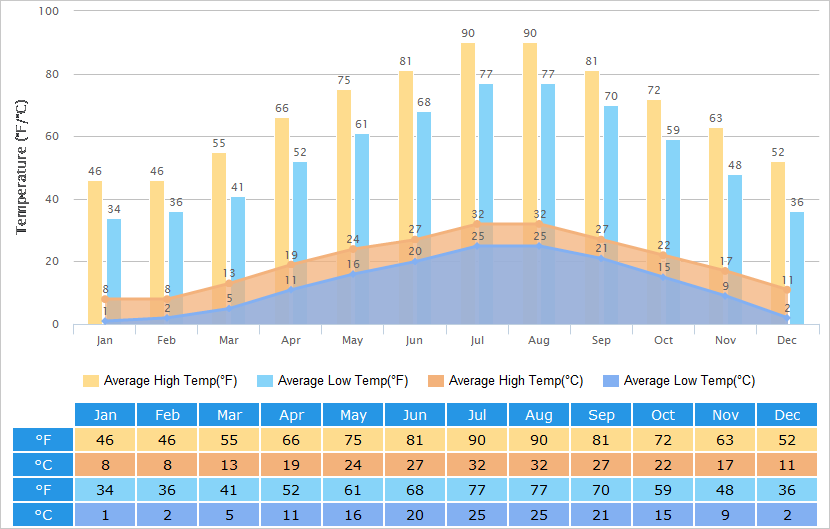
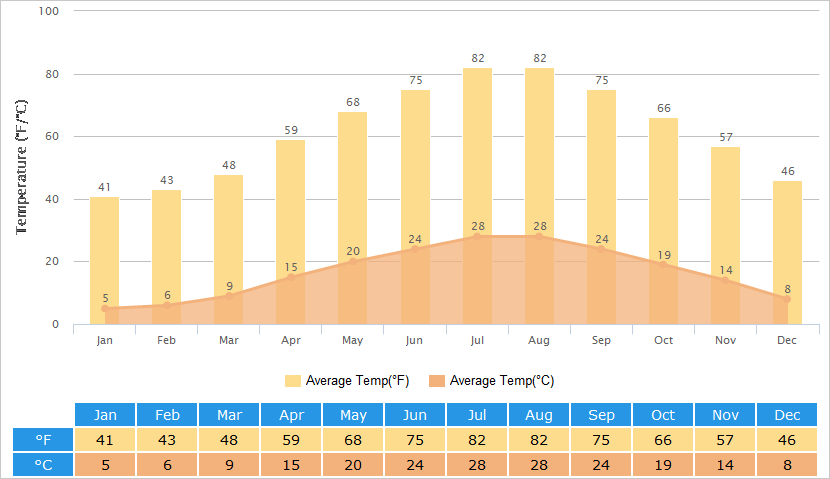
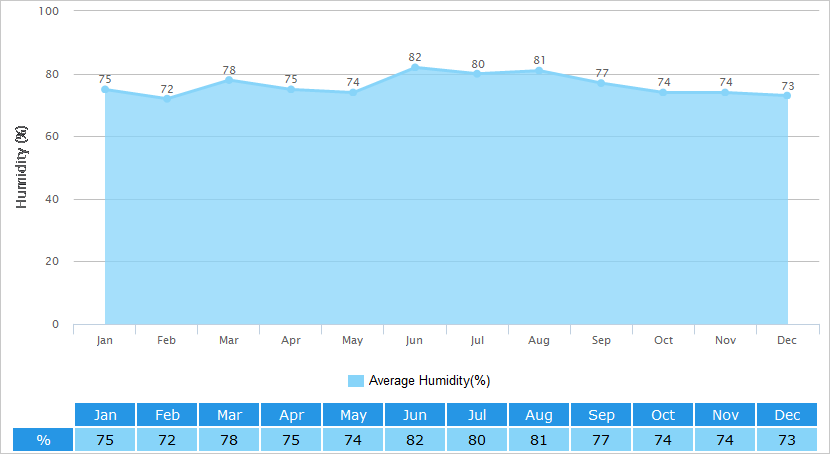
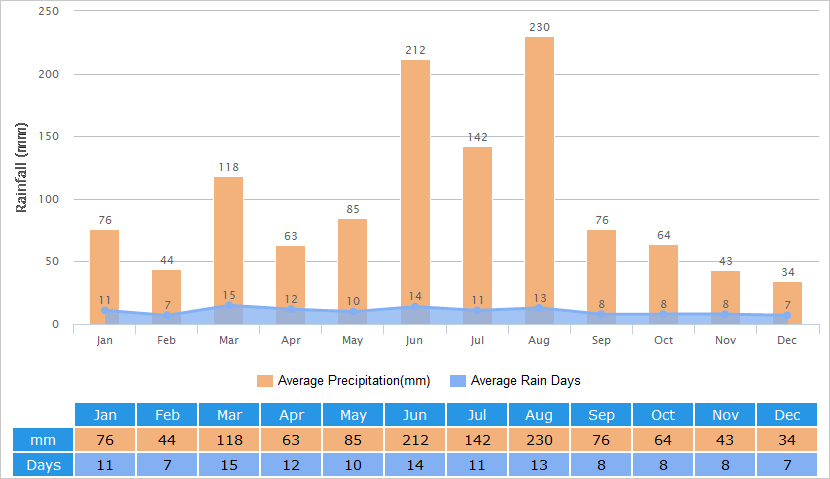
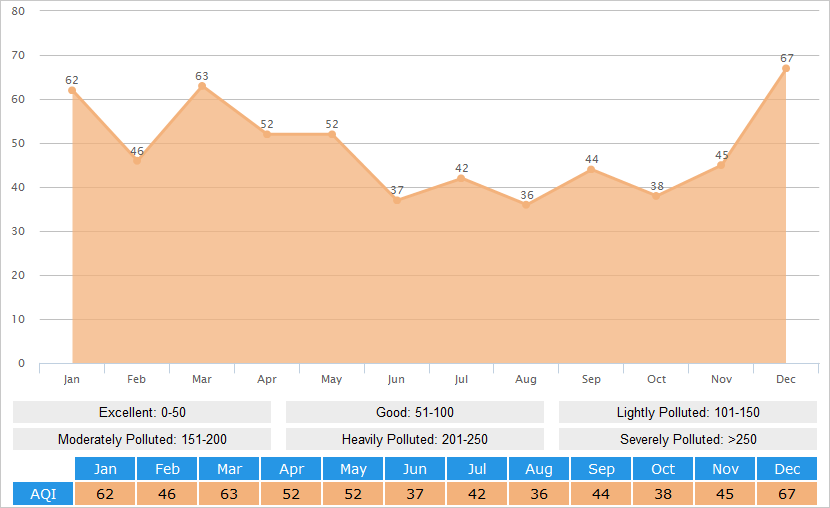
Shanghai Climate - Seasons & Travel Advice
With a subtropical maritime monsoon climate, Shanghai weather is generally mild and moist. Although situated in the southern part of China, it still has four distinct seasons. The warm spring and the cool autumn are comfortable for travel, while the sweltering summer and the chilly winter are less pleasant.
Spring (Mar. - May)
Spring in Shanghai is from March to May. This is the best season in a year for traveling. Spring flowers in bloom make the city lively and attractive. The temperature is comfortable around 20 ![]() C (68
C (68 ![]() F). Light rain happens however will not disturb your trip. Long-sleeved shirts, thin sweaters or coats are suitable for this season.
F). Light rain happens however will not disturb your trip. Long-sleeved shirts, thin sweaters or coats are suitable for this season.
![]() See also: 15 Most Beautiful Places in Shanghai in Spring
See also: 15 Most Beautiful Places in Shanghai in Spring
Summer (Jun. - Sep.)
Summer here is long from June to September. With high temperature and abundant rainfall, the city can be very hot and wet at this time. The highest temperature occurs in July or August. The temperature can be above 35 ![]() C (95
C (95 ![]() F) for more than 10 days. You’d better avoid the hottest time around 14:00. Wear cool clothes such as T-shirts and shorts and drink more water to prevent heatstroke or dehydration.
F) for more than 10 days. You’d better avoid the hottest time around 14:00. Wear cool clothes such as T-shirts and shorts and drink more water to prevent heatstroke or dehydration.
There is a 'Plum Rain Season', aka Meiyu Season, from mid-June to early July. This lasts for nearly one month along the middle and lower reaches of the Yangtze River, commencing in early summer when the plums ripen. During this period, the rainfall often equals 25% of the city's annual total! Showers alternate with sunshine and the weather is really hard to predict. The frequent rain may spoil your travel plan. From late August to mid-September, typhoons can bring heavy rain in their wake. These two periods are best avoided by travelers but should you decide to visit be sure to bring an umbrella. Of course, the umbrella can also be used as a protection from the strong ultraviolet radiation on the sunny summer days.![]() See also: 12 Popular Shanghai Activities to Survive Summer
See also: 12 Popular Shanghai Activities to Survive Summer
Autumn (Oct. - Nov.)
The short autumn comes in October and November. The temperate weather makes this season good for travel. It rains often in autumn except in late November. Long-sleeved shirts, sweaters and coats are appropriate.![]() See also: Where to Go in Shanghai in Autumn - 11 Best Destinations
See also: Where to Go in Shanghai in Autumn - 11 Best Destinations
Winter (Dec. - Feb.)
The city's winter is from December to the next February. The coldest period is from the end of January to early February - usually during the Chinese Lunar New Year. The worst of the cold usually lasts for only a few days and it seldom snows. The temperature is not as low as some cities in north China like Beijing, but the humid cold wind is a torture for even the northerners. A sweater and overcoat are necessary.![]() See also: Top 10 Places for a Shanghai Visit in Winter
See also: Top 10 Places for a Shanghai Visit in Winter
* Shanghai's urban sprawl greatly affects the climate. The urban area is usually hotter and drier than the suburbs and this effect aggravates the rainfall and pollution, calling for people's attention to protect and improve the environment.